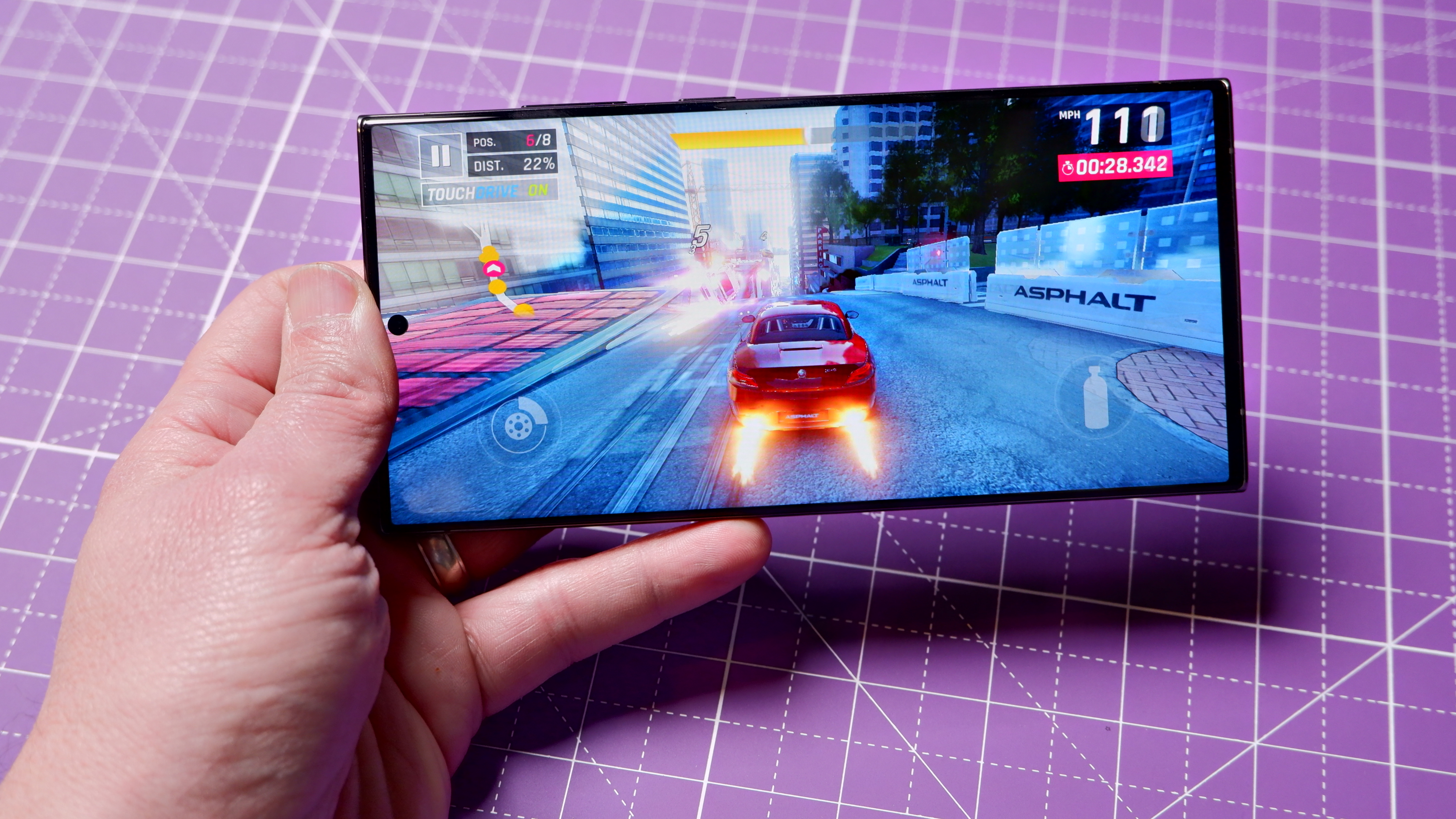Forget Galaxy S23: Samsung Galaxy S24 could be way faster
Snapdragon 8 Gen 3 chipset rumored to be getting a big performance boost

It's been a good start to 2023 for Qualcomm's Snapdragon 8 Gen 2, with the chipset being credited for big performance gains and long battery life enjoyed by the likes of the Samsung Galaxy S23 and OnePlus 11 flagships. Based on a new report about future silicon, it sounds like Qualcomm is just getting started.
Over the weekend, leaker RGcloudS tweeted out details about the Snapdragon 8 Gen 3, the as-of-yet unannounced chipset that's likely to power some of the best Android phones to come out in early 2024. If the details are accurate, it sounds like Qualcomm plans to build off the momentum of this year's silicon, which could vault future Android phones ahead of iPhone's powered by Apple's top-perfroming A series chipsets.
As summarized by Wccfetech, the Snapdragon 8 Gen 3 is tipped to feature a 3.7GHz Cortex-X4 as the main core of its CPU. Like the Snapdragon 8 Gen 2, the newer Qualcomm silicon would support that main core with four performance cores and three efficiency cores. That setup is being credited with some of the gains the Snapdragon 8 Gen 2 has made over previous generations of Qualcomm chips.
Snapdragon gen 3 is indeed strongBigger jump compared to last genApparently the main contributor was arm itself, especially X4 & 1,4,3 configi think it's almost confirmed that gen3 for galaxy will beat bionic 17 frequency"on paper"up to 3.7+ghz for mobileMarch 3, 2023
Should reports of a 3.7GHz clock speed be accurate, that would mark a 15% jump over the 3.2GHz clock speed of the Snapdragon 8 Gen 2. It would also be faster than the version of the Snapdragon 8 Gen that's optimized for Samsung Galaxy S23 phones — the Snapdragon 8 Gen 2 for Galaxy chipset offers a top clock speed of 3.36GHz. Even if Qualcomm and Samsung don't team up for an optimized version of the Snapdragon 8 Gen 3, it's anticipated the new chipset would offer a "bigger jump compared to [the] last gen," according to RGcloudS.
Certainly, the Snapdragon 8 Gen 2 already established some big gains in both our Galaxy S23 Ultra benchmarks and OnePlus 11 benchmarks. Samsung's new phone improved its Geekbench multicore score by 44% over the numbers posted by the Galaxy S22 Ultra, powered by a Snapdragon 8 Gen 1 chipset. Both the Galaxy S23 phones and the OnePlus 11 posted better results in 3DMark's Wild Life Unlimited graphics test than any of the iPhone 14 models, including those powered by Apple's A16 Bionic.
What about iPhone 15?
That's raising hopes that the Snapdragon 8 Gen 3 and its faster CPU could close the gap with the iPhone — certainly with the A16, which is expected to feature in the standard iPhone 15 this fall and potentially the A17 Bionic reportedly headed to the iPhone 15 Pro models. One wrinkle there, however is that the A17 Bionic is expected to be built a 3nm process, compared to 4 nanometers for the Snapdragon 8 Gen 3. The smaller the process, the denser the transistors on a chipset, which can lead to performance and power efficiency gains.
Apple has reportedly locked up all the 3nm chips being fabricated by TSMC, which could allow the iPhone 15 Pro models to continue to enjoy a performance edge over the Galaxy S24 and its 4nm Snapdragon 8 Gen 3 chipset.
Sign up to get the BEST of Tom's Guide direct to your inbox.
Get instant access to breaking news, the hottest reviews, great deals and helpful tips.
Chipsets do more than just govern performance — they also help phones last longer on a charge. The A17 Bionic is likely to enjoy improved power efficiency thanks to its 3nm process, while the 4nm Snapdragon 8 Gen 3 looks to be boosting the clock speed on its main core. Some observers fear that would mean a hit on battery life, especially after the Snapdragon 8 Gen 2 saw big gains in longevity over its predecessor. The Galaxy S23 Ultra, Galaxy S23 Plus and OnePlus 11 all claimed spots on our best phone battery life list, while the Galaxy S23 also saw big gains in performance efficiency over the S22.
It will be some time before we see just what Qualcomm has cooking with next year's Snapdragon 8 silicon. Typically, the chip maker doesn't reveal its new top-of-the-line chipset until later in the year — the Snapdragon 8 Gen 2 debuted last November, for example, with phones powered by the new silicon only emerging at the end of 2022. We wouldn't anticipate any concrete announcement from Qualcomm until the tail end of this year, though one rumor predicts an earlier launch than usual for the Snapdragon 8 Gen 3.
More from Tom's Guide
Philip Michaels is a Managing Editor at Tom's Guide. He's been covering personal technology since 1999 and was in the building when Steve Jobs showed off the iPhone for the first time. He's been evaluating smartphones since that first iPhone debuted in 2007, and he's been following phone carriers and smartphone plans since 2015. He has strong opinions about Apple, the Oakland Athletics, old movies and proper butchery techniques. Follow him at @PhilipMichaels.

